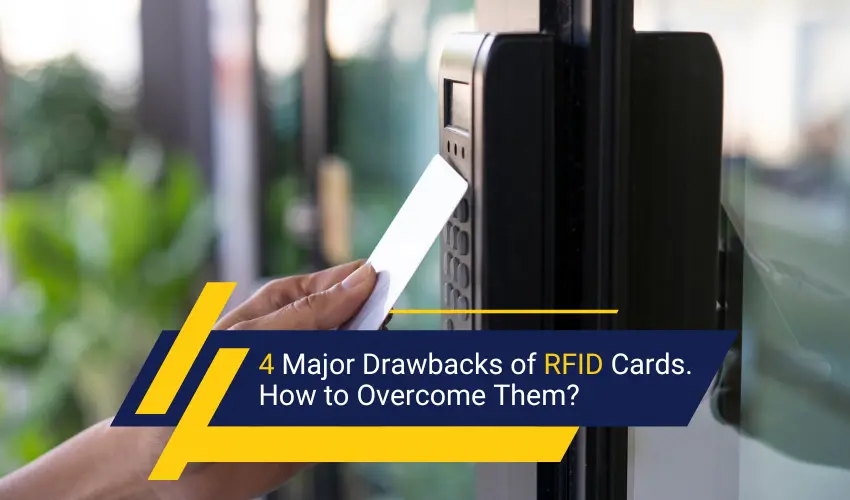
RFID Cards: Radio Frequency Identification (RFID) cards are a popular means of identification at schools, colleges, universities, and institutions. Unfortunately, they have become an ancient way of tracking students and faculty members. Nowadays, parents are raising red flags against such cards as they think that the card can monitor the movement of their children wherever they go.
As a result, it has become a means of intruding on privacy. While the parent’s genuine concern is the single most crucial factor that should eliminate the usage of the cards, other drawbacks of RFIDs also hold equal importance.
4 Major Drawbacks of RFID Cards
- High Cost
- Technical Glitches
- Hassle of Carrying
- Security Concerns
1. High Cost

According to a source, RFID readers can cost anywhere between $500 and $2000, with separate antenna costs. The average cost of an RFID reader is $750, as per the same database. On the other hand, the cost of an RFID card ranges between $0.10 to $1.50. On the other hand, a passive ID tag costs between $5 and $15.
Besides this, they would intel installation, licensing, and maintenance costs. As a result, they can significantly impact the CAPEX of an educational center. Furthermore, the cost to organizations is monthly, and ongoing until it is replaced by a better means of marking entries and exits.
2. Technical Glitches
RFIDs function well most of the time; however, they can face issues upon contact with metal or water. Moreover, they continuously face issues even without contact. For example, RFID systems might not read signals from two tags simultaneously. They would most likely not tag any of the cardholders.
Collision from more than one reader is a common problem faced by students and faculty members while entering or exiting premises. The situation may most likely require scheduling a technician visit and replacing the equipment if the malfunction persists after multiple attempts of correction.
3. Hassle of Carrying
Unlike new-age systems, RFID cards require physical carrying to the destination for access, attendance, and authentication. Students or faculty members that forget to carry them to the educational institution might face major issues such as going through a time-consuming process of filing an application for issuing a new and temporary card.
It is followed by a waiting period for card issuing, which can drain productivity hours. Moreover, the cost of issuing a new and temporary card will most likely be added to the student’s fees or deducted from the salary of the faculty member.
Security Concerns
One of the biggest concerns linked with RFIDs is the accessibility of the data stored on the cards through unauthorized devices. The cards store vital information linked to a person, including passwords, which can make the in-house systems of the educational institution vulnerable to attacks.
Moreover, criminals can manipulate the information available on the cards or devices to access restricted premises. If lost, anyone could use the card for accessing the premises of the educational center without authorization, and cause drastic harm to people or the faculty.
What is the Alternative to RFID Cards?
Contactless biometric attendance management system, such as AttendFy is the best method to overcome the drawbacks of RFID cards. Such a solution can truly provide a hassle-free experience to the end user by allowing access, marking attendance, and authentication through face recognition.
AttendFy is an AI-driven solution that functions seamlessly using a regular smartphone or tablet camera and doesn’t come with the cost of installation, decreasing the CAPEX burden of educational institutions. Moreover, it is one of the best solutions to mark the attendance of remote users.
The tamperproof solution comes with live class monitoring and group attendance marking features. The former helps in quality class assurance while the latter helps to enhance the productivity of the class by eliminating the need for roll calling or signature sheets.
